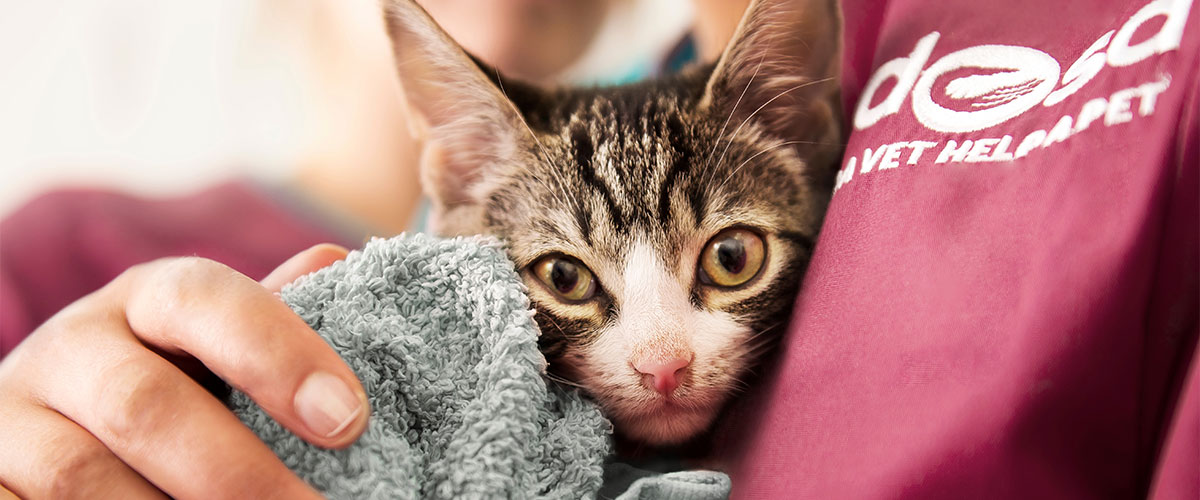Avoiding stress: why cats are best kept on their own
Cats like their own company and should generally be kept on their own. Living with other cats is a common cause of chronic stress which, in turn, can cause all sorts of health issues for your cat.
It is sometimes possible for cats from the same litter to live together. If you’re considering getting littermates, or if you already have more than one cat, there are a few things you can do to reduce their stress.
Stressed cats: signs and symptoms
- Stressed cats can start spraying urine indoors. This is unpleasant for both the cat and the owner.
- Stressed cats can get feline cystitis (bladder inflammation). This is painful and may cause blood to appear in the urine. Download our guide to bladder stress in cats
Signs your cat is stressed include:
- Reluctance to move
- growling, hissing or miaowing more than usual
- peeing outside the litter tray or in different places in the house
- aggression or changes in behaviour
- increase in time spent still or sleeping/reluctance to move
- hiding
- overgrooming
- reluctance to play
- changes in the amount of time spent in or away from the house.
If you notice any changes in behaviour, speak to your vet as there might be a medical reason. If the problem is behavioural, they will be able to refer you to an APBC accredited behaviourist.
Reducing cat stress
- Each cat should have their own litter tray, cat bed, hiding place, scratching post, feeding bowl and water bowl.
- Dot these around your home, so your cats can choose to avoid each other.
- Provide spares. If you have two cats, provide three of everything.
- Give them plenty. Cats aren’t good at sharing! The commonest cause of stress is when they’re forced come into close contact with each other to get the things they need, like food and water.
Cat flaps: stopping feline intruders
A cat flap is a good way to give your cat access to your garden but they can also give other cats a handy doorway into your home. Your cats can find it really stressful if there’s a regular intruder on their home turf. They might start showing some stress-related problems, like going backwards with housetraining or getting bladder problems.
You might want to think about getting a cat flap that only opens for your cat. These are controlled either by your cat’s microchip or by a tag on their collar. It’ll only open for your cat, like their own personal door key.
You can get a microchip cat flap from Sure Petcare – and you’ll be supporting our work, too. PDSA supporters can get a discount on Sure Petcare microchip cat flaps, plus we get a donation to help more poorly pets too!

